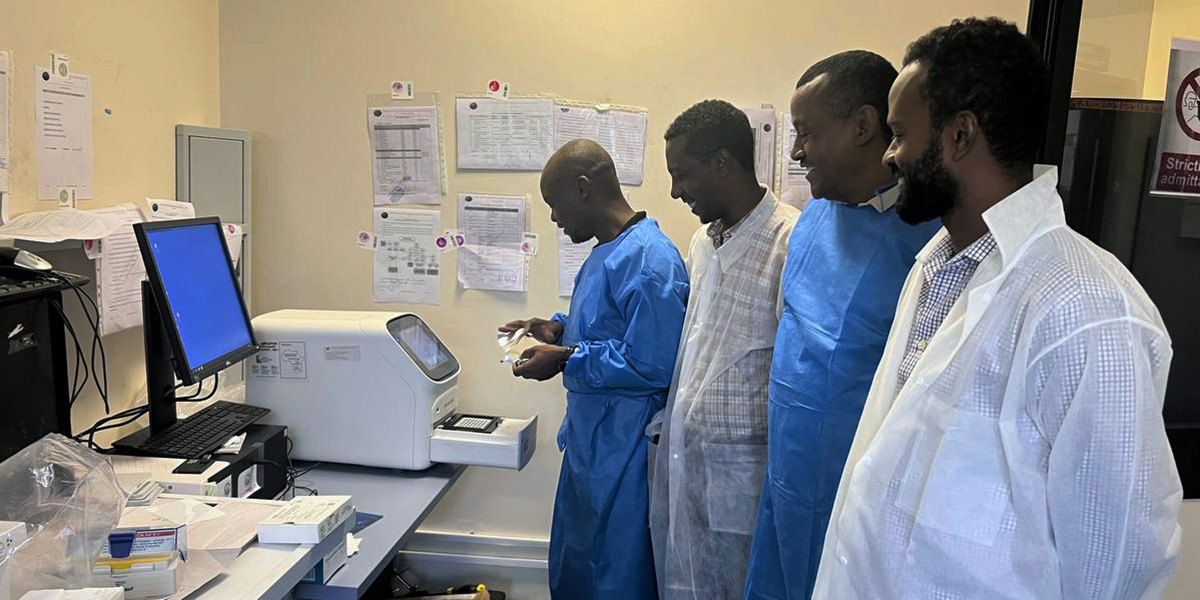The Global One Health initiative (GOHi) facilitated the calibration of real-time PCR machines in four regional influenza laboratories across Ethiopia through a service contract with African Biosystems, Kenya from July 29-August 9.
Strategically located to serve large populations, the laboratories are critical for detecting respiratory illnesses and emerging pathogens, like Mpox.
The regional influenza laboratories, located in Arba Minch, Bahir Dar, Addis Ababa and Adama, are equipped by the U.S. Centers for Disease Control and Prevention (CDC)-funded International Health Regulation (IHR)/Control Coronavirus Aid, Relief and Economic Security (CARES) Act with advanced real-time PCR machines essential for testing specimens from severe acute respiratory infection (SARI) and influenza-like illness (ILI) sentinel sites.
Beyond their national roles, these laboratories play a significant part in the global influenza surveillance system by providing crucial data for tracking and managing influenza outbreaks. Accurate calibration of PCR machines ensures reliable test results and enhances their contribution to national and international public health programs.
This initiative aimed to improve the accuracy and reliability of testing for respiratory pathogens, including influenza, SARS-CoV-2, and Respiratory Syncytial Virus (RSV). The equipment calibration includes training of key laboratory personnel to ensure the sustainability of laboratory testing and reporting. Eleven lab professionals participated in the training, gaining a critical understanding of both preventive maintenance and calibration, which should enhance the performance and durability of PCR machines.
The calibration of equipment and personnel training underscores the importance of regular PCR machine calibration in maintaining high diagnostic standards, contributing to timely detection and response to respiratory illnesses and bolstering the effectiveness of the national surveillance system.
